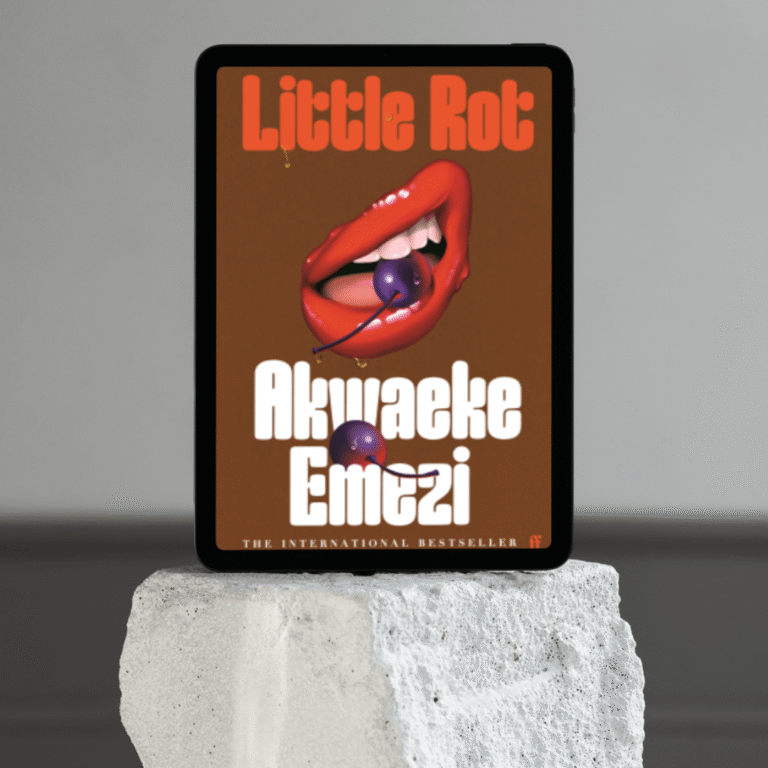Yellowface by R.F. Kuang
Genre: Literary Fiction | Satire | Published: 2023
Yellowface has been on my TBR for a while, and I was holding it off, but coming out of a reading slump, I said, Why not? Honestly, this was the perfect book for that. I polished it off in a day via audiobook, and it was well worth the time. This will be my 2nd full detailed review since I first posted Reel. I didn’t intend for it to be, but it was required.
Yellowface felt like watching a car crash in slow motion with commentary, but the commentator is also the one driving the car, completely unaware she’s about to crash, and somehow still pressing the accelerator and for some reason has decided to also close her eyes. I was banging my head every time she did anything, literally yelling “Girl, please… no!” at every page. I was in shock, not because I was surprised by what was happening per se (as a black woman, certain things white people do no longer shock me), but because the protagonist was so brazen to the point she started to believe her delusion.
Yellowface is a social commentary that touches on so much, from cancel culture and social media culture wars, to authenticity in literature, the truth behind diversity and inclusion and how the literary industry treats its writers. It’s a sharp critique of how the industry commodifies and consumes art, culture, and history, and while R.F. Kuang doesn’t offer a clear-cut conclusion, she intentionally leaves the conversation open. She lets the book serve as a discussion point in itself. It forces us, as readers, to look inward – at our own biases, as well as the opinions we hold and how we choose to share them.
Synopsis
Yellowface follows June Hayward, a down-on-her-luck author who is awaiting her big break and believes she is being hard done by an industry which now values ‘diversity’ over quality. She is ‘friends’ with Athena, everybody’s favourite Asian American literary darling. Athena is getting all the recognition, all the awards and the Netflix deals that June believes she deserves despite also being an insufferable person. When Athena dies in an unfortunate accident (one June is witness to, don’t worry, it is not that kind of story), June steals Athena’s last manuscript, a story about unwritten Chinese history and begins the process of releasing it as her own.
My Thoughts and Feelings
Characters
One of my favourite things about Yellowface is the use of an unreliable narrator. For anyone unfamiliar, it’s a literary technique where the storyteller’s credibility is compromised, making you question their version of events. June is so deeply unhinged that you can’t trust anything she says, not because her account is wrong, but because she genuinely believes she’s the victim of a system out to get her (oh, the irony). She moves through the story convinced she’s finally getting the good she deserves, completely ignoring the fact that she plagiarised someone’s work and is now just facing the consequences. Criticism – valid or not – be damned
Even though I hated her so much, I think for what she was supposed to be, it was perfectly executed.
Major Themes
Authenticity
June, at the request of her publisher, changes her name to Juniper Song (while Song is her actual middle name, it makes her appear more ambiguously Asian), which legitimises the fact that she’s writing a book about Chinese history. June never outwardly suggests that she is not white; however, she is mistaken for it on various occasions. This calls to the real question of who can and cannot write culturally sensitive material. Even though this isn’t her work, nor is it something she ever would’ve written, everyone around her believes it is. And if we’re going along with that assumption, it opens up a larger conversation about white authors profiting off cultures and experiences outside their own. Many call this “trauma porn”. It’s a conversation that comes up constantly in the industry, especially when publishers pour massive marketing budgets into these kinds of stories, while authors with actual lived experiences are consistently overlooked.
Whitewashing
Yellowface is intentionally cringe-worthy as it makes you wince because you can’t believe this is happening. My favourite part is when the book is going through initial edits by the publishing company. Kuang uses humour and a lot of exaggeration to highlight how whiteness is almost always prioritised, even with cultural and race-based narratives. There is a need for a ‘white saviour’ so white people can see themselves in the text (something we have seen countless times). She, as well as many of the various white executives, from her editors to the film producers, are almost painfully unaware of their racism, microaggressions and continuous centring of white and Western voices. This is almost hilarious considering June bangs on about how ‘no one cares about white authors anymore’. These concessions for white audiences are scattered throughout the book.
Cancel Culture
When the truth starts to blow up in June’s face, the book shifts into a sharp exploration of what it means to be cancelled. We get chapters that dive into the chaos of being dragged online, and Kuang offers a surprisingly nuanced take on cancel culture. She captures that strange disconnect where Twitter feels like the entire world when you’re in it, relentless, and all-consuming, yet, in reality, it’s such a small, insulated ecosphere that barely causes a ripple outside of itself. It also holds the mirror up to our faces about how we approach Twitter discourse and what pile-ons feel like, deserved or not, she almost makes me feel sorry for June.
The Downside of Diversity
Towards the end, Athena, who has only been portrayed as catty, self-absorbed and unlikeable by both June and the various accounts of her by internet personalities, is redeemed in a sense. Athena is not a perfect Asian, nor does she have to be; however, June is shown what an uphill battle these industries are for people of colour, and how the push for ‘diversity’ can often limit and punish minorities when they dont fall into the boxes laid out for them.
“Do you know how much shit Athena got from this industry?’ They marked her as their token, exotic Asian girl. Every time she tried to branch out to new projects, they kept insisting that Asian was her brand, which was what her audience expected.’
The industry often reduces minorities to their identity, and that alone must be their brand. This means being harshly criticised when one doesn’t present as what is expected of them.
Hits & Misses
I didn’t go into this expecting satire – I thought it was going to be an honest-to-God story. So I was very surprised by how bold and brazen it turned out to be. But once I caught on, I was fully in and honestly enjoyed it a lot. As mentioned, the use of the unreliable narrator is the chef’s kiss, absolutely A1. It’s a brutal takedown of the publishing industry, whiteness, and performative allyship, with parallels that could easily be drawn across so many other industries. Kuang’s writing is sharp, deliciously self-aware, and completely on the mark. She nails it.
However, the story does drag somewhat towards the end. June descends into chaos, and so does the book. I am happy that certain characters get redeemed at the end, but I’m also disappointed that the fallout isn’t as crazy, and there is no real punishment.
Additionally, the more I researched while writing this review, the more I learned about R.F. Kuang and the criticisms she has faced as an author. I can see parts of herself in Athena. I didn’t pick up on it while reading, but looking back, her voice bleeds pretty strongly into the narrative – especially in how Athena is portrayed and the kind of criticism she receives from the Asian diaspora. It starts to feel a bit heavy-handed at times, like a way of clapping back at her critics without saying it outright. And honestly, the middle of the book is just one long Twitter thread in novel form. Entertaining? Yes, but it’s very meta and maybe overly so. If you’re curious about these yellowface reviews, I do recommend scrolling through GoodReads.
Favourite Quotes
There are so many quotes from this book that I love. Here are a few.
“Don’t ghosts just want to be remembered?”
“This industry is built on silencing us, stomping us into the ground, and hurling money at white people to produce racist stereotypes of us.“
“If publishing is rigged, you might as well make sure it’s rigged in your favour.“
“The truth is fluid, there is always another way to spin the story.”
Final Thoughts
The audacity gobsmacked me – but I guess that’s the point. Yellowface is messy, meta, and painfully honest. It is an incredibly obvious take, but still highlights the nuance in these conversations. It’s satire with teeth, and it will make you question your own biases while laughing through the discomfort.
This book reflects a post I wrote a few months ago about a discussion I had with friends on trauma porn. At the time, my blog was still new, and the subject matter didn’t seem to fit within the content I was posting. So now is the perfect segue into that post, and that will be coming on Friday!
I hope you tune in!
Signed,









Great review Mo, so well written and you’ve summed up all my thoughts and feelings on this book.